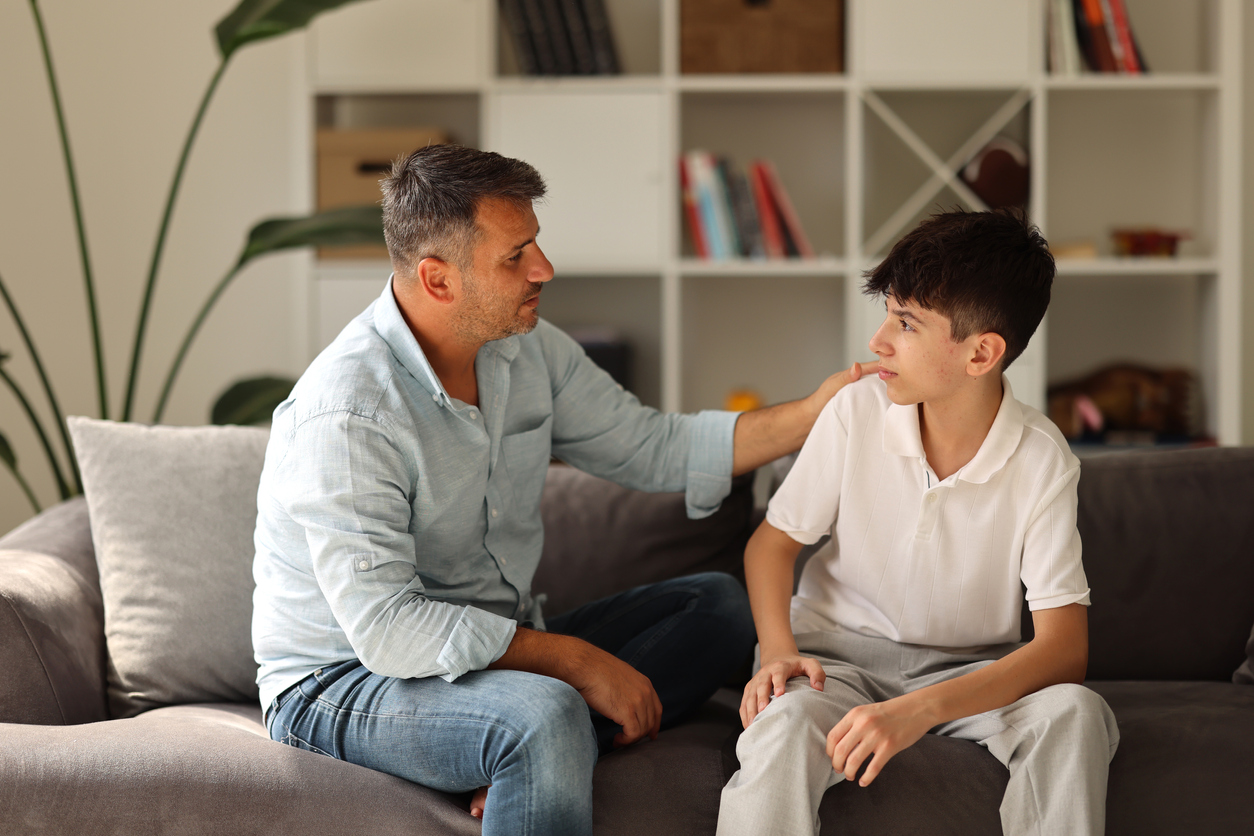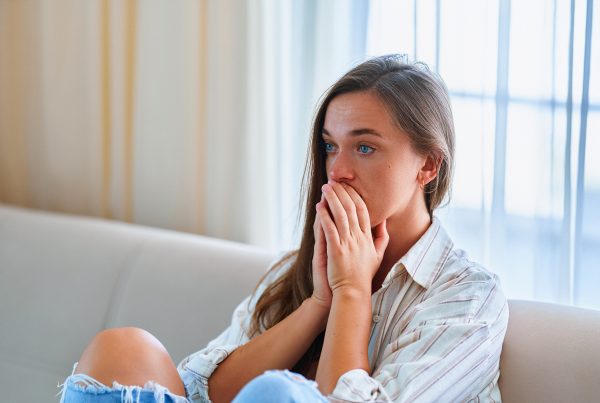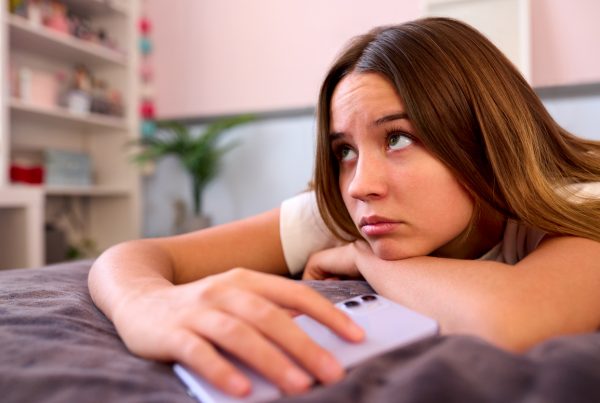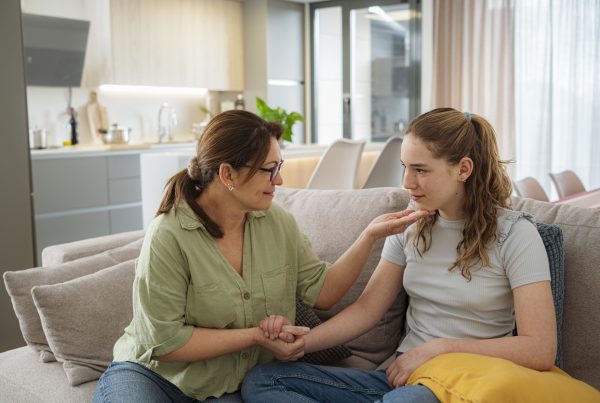There are key dos and don’ts for helping teens with anxiety. These exist because each action or word can significantly impact a teen’s experience and their path to recovery. They ensure that support is provided in a manner that’s empathetic, constructive, and conducive to positive mental health outcomes. Adhering to these dos and don’ts helps create a safe and trusting environment, which is crucial for adolescents grappling with anxiety.
Anxiety disorders are the most common kind of mental health problem around the world, especially for modern-day teenagers. Teens today are struggling with symptoms of anxiety more so than in previous generations, even when accounting for our improvements in screening and understanding what constitutes too much anxiety.
Moments of anxiety are normal, and part of the human experience. But when a teen is preoccupied with irrational fears, paralyzed by their own worries, or even debilitated by overwhelming and consistent, daily dread, then they are experiencing an anxiety disorder. Treating anxiety can involve therapy and medication, but what happens at home is just as important.
Learn more about the dos and don’ts of supporting your teen with anxiety.
Dos for Helping Teens with Anxiety
Anxiety disorders encompass a wide range of mental health problems, ranging from generalized worry (which can leave teens feeling tired, jumpy, distracted, and consistently negative) to severe, and specific phobias. Some important “dos” when dealing with teen anxiety include:
Do Facilitate Open Communication
It’s important to encouraging a safe space for expressing feelings. Parents of teens with anxiety need to make space for teens to talk about how they feel without judgment. They also need to listen without interjecting, or without offering simplistic or unrealistic solutions. Teens with anxiety can’t be told to simply feel better, or not to worry so much.
Rational and calm explanations can sometimes help, but at other times they can feel dismissive, either by condescendingly implying that a teen isn’t already aware of the irrational nature of their fear, or by implying that simply trying to think differently will fix the issue, when there’s nothing simple about trying to silence an intrusive, unwanted thought.
Don’t focus on solutions right away. Instead, focus on making sure your teen can always come to you to talk about how they feel, and discuss their mindset. Instead of addressing the anxiety in question, think of ways you can help your teen feel better in the moment. Take their mind off things through a long walk, a shared activity like cooking or gardening, or just some down time spent watching a film.
Do Seek Professional Guidance
Anxiety disorders require professional treatment. Making changes to your teen’s home environment – by giving them a space to talk about their anxieties and acknowledge them without dismissal – is important.
But severe anxiety disorders can be debilitating, and can be addressed through rigorous, regimented therapy. Encourage therapy by talking to your teen about treatment, taking them to their appointments, and looking at different treatment options with them. Make sure that, in the end, it’s their decision.
Do Promote Healthy Coping Mechanisms
There are behaviors and coping skills that help reduce feelings of anxiety, both immediately (as a response to an anxious episode) and in the long-term (by improving mental resilience and self-esteem). These include exercise, a balanced diet, improved and consistent sleep schedule, mindfulness exercises, and relaxation techniques (particularly ones involving controlled and conscious breathing).
An important note about these coping mechanisms is that they’re often most effective when adults model them for their teens. In other words, adopt these exercises and behavioral changes as a family. Improve your eating habits, spend time exercising together, and improve your sleep hygiene for your own benefit, as well.
Don’ts for Helping Teens with Anxiety
Your best efforts to help can sometimes make things worse. Some well-meaning parents take the tough love approach or think that their teens just need to face their fears a little. While it is true that exposure therapy plays an important role in addressing phobias or specific worries, the structured and careful approach of a therapist is very different to that of a parent with no experience with symptoms of severe anxiety. Some important “don’ts” to avoid when helping your teen include:
Avoiding Dismissal
Some parents might try to talk down their teen’s anxieties, to make them seem like less of an issue. For them, trying to ensure that their teen’s thoughts aren’t acknowledged as a “big deal” might help their teens come to that same conclusion. Sadly, the opposite is usually true.
Dismissing a teen’s anxieties only serves to alienate them and make them feel alone. It can also make them feel bad for being affected by something their parents don’t consider serious.
Not Pressuring for Immediate Solutions
When parents aren’t trying to solve their teen’s issues themselves, they may push their teens to solve their problems. But when it comes to mental health, progress is gradual, and setbacks are normal. It’s important to ensure your teen understands that they’re not being rushed and that their only obligation in treatment is to themselves. Don’t push your teen to get better for someone else or to take on anyone else’s expectations for their progress.
Neglecting Self-Care for Caregivers
Parents who focus on helping their teens sometimes do so at the detriment of their own well-being. Most parents would agree that this is normal and even expected. But carrying too much burden for your teen’s well-being can easily backfire.
Teens recognize when parents sacrifice themselves for their teen’s health, which can also negatively affect them. Be sure to look after your health, and don’t neglect to care for yourself. That means seeking support from friends, family, and your partner or loved ones, too. We all need people to lean on at times.
Changes in routine, structure, and support can heavily affect a teen’s mood and mental health. But in cases of severe anxiety, professional help should always be a priority. An individualized therapy plan can utilize different modalities and frameworks to reduce a teen’s anxiety, improve their self-esteem, and guide them towards healthier relationships with others, their environment, and their thoughts.
We at Visions tailor programs to teens for a variety of mental health issues, including severe anxiety disorders and anxiety-adjacent conditions, such as obsessive-compulsive disorder and post-traumatic stress disorder. Our teen treatment programs and outpatient treatment plans help teens manage and improve their symptoms and transition into daily life through an extended aftercare program. We also offer teletherapy services and are always available to answer questions.
Contact Visions Adolescent Treatment Centers to learn more.








